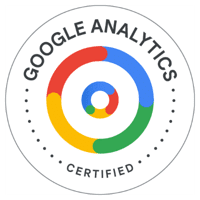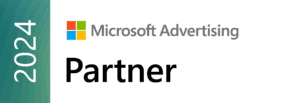In this episode Dan Kaplan, CoFounder of periscopeUP interviews Shane Ostrowski, Sr. Account Manager at Reach Local. Listen in as Shane discusses why you should consider advertising on Bing, Yahoo! and Facebook, not just on Google, and his advice for small business landing pages.
Shane has been with Reach Local for seven years, and serves local small businesses.
Dan Kaplan : Alright. Hi everybody. Dan Kaplan of periscopeUP here and welcome to Getting more Leads and Sales from your Website Podcast. Today, my guest is Shane Ostrowski, senior marketing consultant with Reach Local. Say “hi”, Shane.
Shane Ostrowski: Hello everybody!
Dan Kaplan : Shane is, as I said, a senior marketing consultant with Reach Local. Reach Local is a publicly traded company. They operate in nine countries and they run, among other things, pay per click campaigns for small and local businesses. Local is their area of expertise and they’re currently running over 60,000 pay per click campaigns in the US alone. Today we’re going to be talking to Shane about what makes a good pay per click campaign for clients such as plumbers, flooring specialists, automotives. Shane, what are the other industries that this can be applied to?
Shane Ostrowski: Any industry. Basically when somebody is looking for you online, we can help you out with. When it comes down to just about any industry, we can actually develop some type of program for it – plumbers, local home improvement companies, auto mechanics, any business really that anybody is searching for even e-commerce.
Dan Kaplan : Today we’re going to be talking about why you should spread around to Yahoo and Bing and potentially even Facebook and not limit your ad spend just to Google. We’re going to talk about what goes into a good landing page. We’ll be talking about negative keywords. I know in the end Shane has little bit of technology to show us with the online chat. Let’s get into it, Shane. What do you say?
Shane Ostrowski: Okay.
Dan Kaplan : First question in helping us get more leads in sales from a local pay per click campaign, you’re an advocate of advertising on more than just Google. You, I know, believe that people should spread their budget to Yahoo and Bing and potentially even Facebook. Will you tell us a little bit about why? Give us some statistics as well as to what the market share is for each of these search engine.
Shane Ostrowski: Well, looking at the market share, a lot of people will look at just marketing on Google itself. Google has about 64% of the market. The nice thing to know is that you can cover 6% of that market but you’re also losing out a little over 35-36% of the market. By putting it on Bing and Yahoo, you have that ability now to actually reach everybody where everybody is searching for. Some other interesting facts about marketing on Bing and Yahoo is that the cost per click is cheaper.
Dan Kaplan : I know you have a screen you want to share, some statistics, right?
Shane Ostrowski: Let me pull this up.
Dan Kaplan : Yeah, why don’t we pull that up for the video viewers so they can see some of these numbers while you explain them?
Shane Ostrowski: Okay, do you see it up there?
Dan Kaplan : It’s connecting, one second. Alright, yeah. Great.
Shane Ostrowski: Okay so we look at this. This is actually from Search Engine magazine or searchenginewatch.com. This is where these statistics are from. We’re looking at shopping and classified. Google Adwords is typically on average 0.70 or 0.72 cents per click where Yahoo and Bing is 0.40 cents per click. Financial services will be $2.88, Yahoo and Bing are $1.98 almost a dollar cheaper for getting a click from there versus your Adwords campaign.
Dan Kaplan : We were talking earlier about why this might be. Some of the mysteries, I think – is that right? There are some speculations to why this might be. Why do you think Yahoo and Bing might be a little cheaper than Adwords?
Shane Ostrowski: I think when come down to looking at numbers and just basically my opinion itself, Yahoo and Bing have a tendency to not have as many searches. But probably those people who are searching on Yahoo and Bing are actually going to be, they’re more in consideration of buying phases. What we do notice in some of our searches in our campaigns and in our analytics is that Google tends to be a large broad search. A lot of times when we look at keywords on Yahoo and Bing, Yahoo and Bing tend to be longer tail keywords which means that they might have specific product they’re looking for or specific location or territory they’re looking for. When we’re looking at the buying funnel, those people who are using the long tail keywords typically are those who have already been to the consideration phase and now really looking to see where they’re buying from.
Dan Kaplan : Interesting. I’ve also read that Bing users generally are a bit older and they’re using Bing because that’s the search engine that came with their Windows machine and it’s the default and they haven’t figured out how to change it. I don’t know if that has an impact on it.
Shane Ostrowski: Making an impact?
We also look at mobile usage too. A lot of times Bing and Yahoo, people get their phones and they’re automatically on it versus Google. And that is actually mobile is increasing dramatically every year.
Dan Kaplan : Interesting. Let’s switch back. I want to go back to split screen, picture and picture. It’s cheaper or can be cheaper. I guess the question I want to know, if Bing and Yahoo are cheaper, why don’t I just put my money into that and lower my cost per conversion, cost per click?
Shane Ostrowski: That’s a good question. The reason why is 64% of the market is actually on Google. Even though it’s more expensive, Google still brings a pretty good return on investment to what you’re marketing for. But Yahoo and Bing actually have lower cost per conversion when it comes to their statistics.
Dan Kaplan : If you put all your budget to Yahoo and Bing, you’re not going to reach most of your customers.
Shane Ostrowski: Correct.
Dan Kaplan : Okay. Give us some ballpark percentages as to you usually recommend spreading that budget around. Is it 70-30, 60-40? What’s your recommendation generally recognizing it’s different for each client at every industry?
Shane Ostrowski: Each industry would be at different financing that it goes through but it’s kind of a start-up until we actually get some analytics in to see which search engines are performing the best. Typically it would take roughly 60-64% of budget put that into Google. Then we will break it down and put roughly, say about 25-30% of the budget to Yahoo and the rest of it to Bing.
The budget is really based out of the volume of how many people are searching it in and the percentage of the market that each of those search engines have. That’s how we coordinately break it down into it. Along with being cheap from Bing and Yahoo, obviously your budget can go a longer way.
Dan Kaplan : What about with Facebook? Is that a popular platform? What’s the trend there? Are more advertisers finding that Facebook paid advertising works for them? Are you seeing money being pushed in that direction?
Shane Ostrowski: I have a lot of advertisers who have been working into Facebook and running campaigns. It’s a lot more demographic for them, breaking it down for each individual clients and they have seen some good success with even running smaller budgets on them.
Dan Kaplan : When you say more demographic, you mean that Facebook can help you target more closely by demographic data? Is that how it works?
Shane Ostrowski: Correct. Facebook is one of the only platforms that you can actually breakdown since it’s its own publisher instead of being a search engine. Typically for example with Google, Google doesn’t really have – they can tell if you a Google Plus page, who you are and what you do, your age group and those types of things to market towards you. But, lots of people use the same computer when marketing through there.
When you sign on to Facebook, they know exactly who you are, what your demographics, what’s your age group is and also what your likes are.
Dan Kaplan : And also what all your friends are into.
Shane Ostrowski: And they know your friends too now these days. They can contact your friends.
Dan Kaplan : What percentage of ad budgets are you seeing going to Facebook?
Shane Ostrowski: A large portion. The budget that we’re looking at the most, we’re usually putting somewhere about 2 or 3 percent of what their overall budgets are. They’re not spending a ton of money on it. The reason why they aren’t is because t’s not really expensive to market on Facebook, but in addition to that, it’s also very targeted.
Dan Kaplan : Interesting. And the conversion rates are on par with proper search engines?
Shane Ostrowski: We’re seeing a pretty good, decent conversion rate on specific industry campaigns. A lot of times it depends on when it comes to conversion who is putting together your Facebook campaign and how they’re putting the text ads is the most important part.
Dan Kaplan : Okay, fair enough. Let’s shift the conversation to landing pages. Now, we’re spreading the budget around. We’re getting as much as of the market as we can. We’re getting a good mix. We can lower our return on investment. We’re sending traffic – you and I talk about this a lot, a lot of pay per click, people who set it up, small businesses who set up their own pay per click campaigns. They just send their traffic to their home page. You and I know that that’s generally not the best way to do it because you’re not aligning your messaging of your advertising with the messaging that the people get when they land to your website. Why don’t you take us through what makes a good landing page? I know you have an example you’re going to show us. Why don’t you pull that out? Why don’t you take us through how we want to think about landing pages, aligning them with our messaging and what goes into a good quality landing page.
Shane Ostrowski: Can you see my screen?
Dan Kaplan : Okay, got it.
Shane Ostrowski: The most important thing is a lot of campaigns that we run, it is important to align your marketing with your pay per click, the keywords you’re using with what you’re actually showing on your website. One of the other thing too is that no matter how much traffic you send to a website that doesn’t look good or isn’t easy for people to navigate, you’re going to lose them and just be wasting your money. The main thing really is when you’re, first of all, working on a website is make sure you have all the contact information on the header of every single page – phone numbers, contact information, who you are. Also, what you do and in addition that – that just dropped off.
Dan Kaplan : Yeah, we lost it.
Shane Ostrowski: There it goes. Is it back up?
Dan Kaplan : Yeah, we got it now.
Shane Ostrowski: The main thing we look at the website was we want to make sure the website has all the information that you’re looking for on top of it.
Dan Kaplan : The contact information.
Shane Ostrowski: The contact information. It has all the contact information. In addition to that, it also has your other services so you can upsell them something else or they realize that you do other businesses along with that, having a call to action. Versus here we have 40-60% on name brands or if you like to shop at home.
Also, it all comes down to connecting this with your pay per click. You want to make sure that the keywords you’re bidding on are landing on your specific page and not just on your homepage. For example, if we come to the home page, there’s not a lot of contact information that’s actually on this home page if you’re looking at laminate floors. That impacts your quality score with all the search engines.
Having a high quality score, the benefit of that is that number one, when people click on those keywords and they land on the specific if they’re looking for that specific product, they no longer have to go anywhere else to get the information that they want.
Dan Kaplan : I see. What you’re saying is if you’re bidding on a keyword regarding laminate floors and the advertisement you’re showing the user is for laminate floors. When they click on your ad, you better bring them to a page that’s all about your laminate floor service because if they go to a page that they’re getting something that they’re not expecting, they’re going to have a higher degree of bouncing and not sticking around because they think maybe they’re in the wrong place or they’re not getting what they though they will get when they click on an ad for that specific service. Is that right?
Shane Ostrowski: I’d like to say that the internet has made a lot of shoppers more ADD, if I could use that terminology. They’re looking for what they’re searching for and they want to get to it right away and they want that quick information. Statistics also shown through analytics and other programs that other researchers have been done that anytime somebody has to go from one page to another page on your website, you usually lose 30% of those people.
By landing them on on this page, you eliminate that possibility of losing somebody versus where a lot of websites will only have Contact Us page and that’s where all their information is. That’s one of the purposes why were reinforce to put your contact information on every single page so they don’t have to anywhere else to where to call you. Especially for example, if I’m looking at laminate floors, I’m reading it now. I want to pick up the phone and call you. I don’t want to click on Contact Us and leave what I’m looking at or reading on.
Dan Kaplan : Make it easy. Make it easy for me to contact you. I love it.
Why don’t you turn off your screen sharing? We’ll turn the conversation to negative keywords. I think this is another hot button issue for you. You believe that negative keywords can be just as important as positive keyword. What is a negative keyword and how would you use it to improve a pay per click campaign?
Shane Ostrowski: For negative keywords, what I’m talking about specifically is these are keywords typically when you setup a pay per click campaign. Most of the campaigns are set up in broad match, not specific words.
Dan Kaplan : I’m sorry. I’m going to interrupt you real quick. What is broad match? What does that mean?
Shane Ostrowski: Broad match is that let’s say you’re bidding on electrical contractors. Any word that has any type of, when you set it up, any word that has anything involving with electrical or contractors regardless of what it is, they’ll actually be popping up in front when people are searching for those products.
Dan Kaplan : That’s what broad match means. Like, electrical toasters or plumbing contractors, either of those would be a broad match to electrical contractors.
Shane Ostrowski: That’s correct because both of those words are on there.
Dan Kaplan : So if you have a campaign set up to bid on broad match, you’re going to be bidding on all kinds of terms that might not be related to exactly what you do.
Shane Ostrowski: Correct. And you still want to make sure that you set up on the broad match versus specific keywords. A lot of times we also look at when we’re setting up, the reason why we do the broad match is because, let’s face it, a lot of us aren’t very good spellers. A lot of times we see our prime keywords do very well when the keywords are misspelled.
For example, I had a campaign that we run out of DC and one of their keywords is “plummers” spelled without the “b”. It converts very well but if you’re doing a strict match on keywords, they will be missing out on that keyword.
Dan Kaplan : The opposite of broad match is exact match. Is that right?
Shane Ostrowski: Correct. That will be exact match.
Dan Kaplan : What’s a negative keyword and how do we use it?
Shane Ostrowski: Negative keywords, you also want to sit down and make sure that you negative out the keywords. The problem with that is when you’re running any type of broad match campaigns is that again, you’re looking, you put in “electrical contractors”. Well, plumber contractors will also pop up if you’re not negating out plumbers.
In addition to that you can have campaigns where somebody is pulling up electrical razors, electrical coffee makers. All those types of keywords could be broad matched and be popping up. You don’t want to be pop up in front of keywords that your service doesn’t actually do because number one, it increases your impressions which also sounds good but the disadvantage of that is that it decreases your click through rate. By having a higher click through rate, all the search engines actually give you a discount for having a good quality score.
By having a good quality score, making sure you have good solid keywords and negative out keywords that you don’t do services for, you’re actually going to spend your money more efficiently and have better conversions.
Dan Kaplan : Good. Good tips. Thanks, Shane. These are three really helpful concepts to improving local pay per click campaigns
I know you want to talk a little bit about your chat product and how that is able to really help increase conversions. Do you need screen sharing for this?
Shane Ostrowski: Yes. I’ll pull it back up again.
Dan Kaplan : Alright.
Shane Ostrowski: You have it back up?
Dan Kaplan : Yeah.
Shane Ostrowski: Earlier I was talking about having a lot of places for you to convert-wise. Things that we’re talking about here is that we originally talked about phone information being on top of the page, also set appointments, easiest way of conversations.
Down here on the right-hand corner is actually live chat program. Essentially what happens is people will click it on and they will have the ability to instant message who’s ever sitting at the other end. There’s two solutions to this live chat. One is that you have it internally when somebody in your own business itself will be managing this live chat, which sometimes costly and time consuming for somebody sitting in front of it.
A lot of our clients are more smaller size businesses and they don’t have the ability to sit in front of the website all the time. What happens is that we manage it full for them. If somebody clicks on the live chat, they have that ability one, another resource for them to reach out and contact them. Along with that, we have an operator that’s actually collecting the information that people are looking for, then we can forward it to one of your specialists such as this case, a foreign company we can now send it to a foreign company and explain to them that this client is interested in laminate floors of certain types or kinds.
We have already realized in a lot of our statistics by adding chat to this and given that one other resource that people have in the ability to reach out to you that it does actually increase up to 30% on your conversions on your website which is important.
If you’re spending a lot of money on pay per click, SEO, having a great website, you always want to maximize your return and also maximize your ability to actually convert as much customers as you can.
Dan Kaplan : Fascinating. Great tips. Awesome, thank you. Alright, Shane how can our listeners learn more about your services and get in touch with you.
Shane Ostrowski: Get in touch with me, you can also look me up on LinkedIn. In addition to that, you can feel free to give me a call. My phone number is 410-562-8391. That’s my cellphone.
Dan Kaplan : Great. Just so everyone can look you up on LinkedIn, how do we spell your name?
Shane Ostrowski: Shane S-H-A-N-E Ostrowski O-S-T-R-O-W-S-K-I
Dan Kaplan : Alright, thank you Shane. Appreciate your insight and thanks everybody for listening.
Shane Ostrowski: Thank you for your time.
Outro: Thank you for listening to the How to Get More Leads and Sales from your Website Podcast. periscopeUP is a trusted provider of digital marketing services including search engine optimization, pay per click and Adwords, content development, social media, Google Analytics, Hubspot, Pardot and WordPress. Our contracts are month to month and we only take on clients we believe we can help.
Visit periscopeUP.com to learn more.
[/su_box]Like This Content?
We’ve got more great practical advice, tips, and examples of how to get more leads and sales from your website. Click here to sign up.







